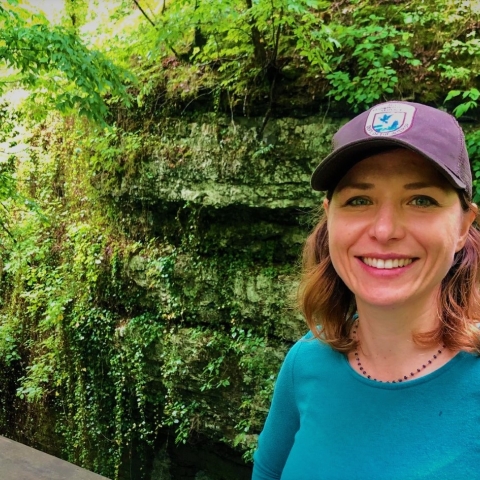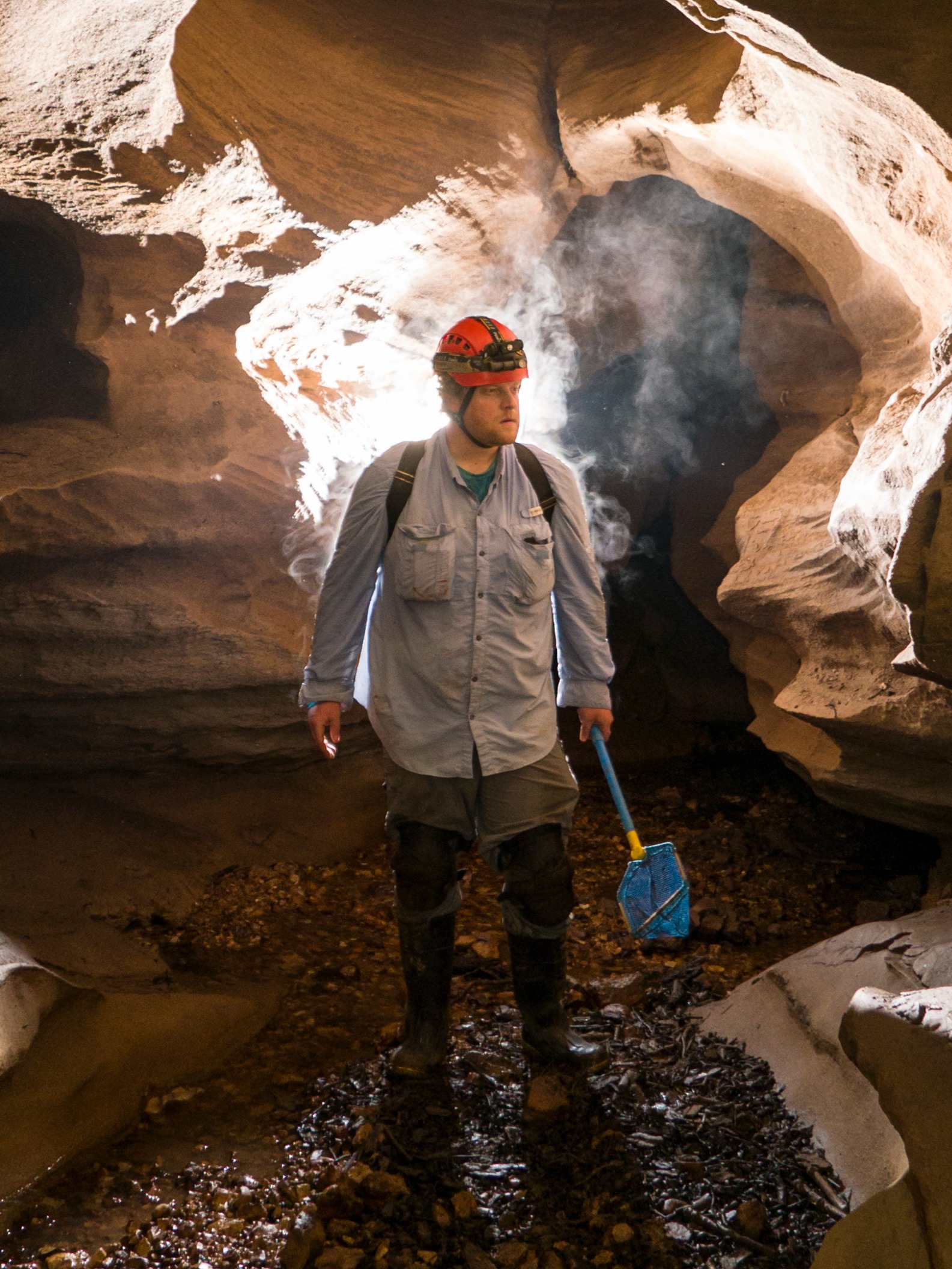The Whitney and Anna Harris Conservation Forum offers a unique opportunity for the public to engage with leading experts in conservation and discuss critical environmental challenges affecting our communities. The evening typically features presentations from two or more speakers, a dinner break provided by the Harris Center, and concludes with an interactive Q&A session.
This event is completely free to the public, made possible by the vision of Whitney and Anna Harris, who believed in the importance of connecting the public and students with cutting-edge conservation knowledge. Our long-standing partnerships with the Saint Louis Zoo and Missouri Botanical Garden further enrich the forum’s impact.
Our most recent event, Ecology in the Dark: A Journey into Cave Ecosystems, took place on November 4, 2025 at the Saint Louis Zoo.
Featured Experts

Vona Kuczynska, MS
Bat biologist
Vona Kuczynska is an alumna of the University of Missouri-St. Louis, where she cultivated her commitment to wildlife conservation and ecological research. Specializing in bat ecology, her work is focused on initiatives that improve conservation practices and environmental decision-making. She performs various roles related bat recovery coordination, conducting acoustic and field research, instructing courses, and advancing collaborative efforts that strengthen biodiversity protection across Missouri.

Matthew Niemiller, PhD
University of Alabama in Huntsville
Dr. Niemiller is an Associate Professor of Ecology in the Department of Biological Sciences at The University of Alabama in Huntsville. He earned a B.S. and M.S. in Biology from Middle Tennessee State University and a Ph.D. in Ecology and Evolutionary Biology from the University of Tennessee. His research focuses on the ecology, evolution, and conservation of subterranean life in North America, but also herpetofauna of the Southeastern United States with an emphasis on salamanders. Dr. Niemiller has published more than 100 papers, book chapters, and books on cave life.

Jut Wynne, PhD
Northern Arizona University
Dr. Jut Wynne is an assistant research professor in the Department of Biological Sciences, Northern Arizona University (NAU), a Fulbright Scholar, and a Sigma Xi Distinguished Lecturer. He holds a Ph.D. in ecology and an M.S. in environmental science and policy from NAU, and a graduate certificate in Cousteau’s Ecotechnie program from the Free University of Brussels, Belgium. Wynne has studied caves throughout the southwestern U.S. and across Polynesia, as well as in Belize, Bhutan, Chile, China, and Spain. His work has led to the discovery of nearly 70 undescribed species of cave-dwelling invertebrates globally and revealed numerous novel wildlife behaviors in Belize’s subterranean ecosystems. He has published 47 peer-reviewed science papers and over 50 other works and is editor of the book Cave Biodiversity (John Hopkins University Press). A fellow of the Royal Geographical Society, The Explorers Club, and Royal Canadian Geographical Society, Wynne's research has been featured on the Discovery Channel, NASA‐TV, Discover Magazine, National Geographic, USA Today, Bhutan Broadcasting Service, South China Morning Post, and other media outlets around the world.
2025 Conservation Partners
Don't want to miss the details for the next event? Email harriscenter@umsl.edu to get on our newsletter list or follow us on Instagram, Twitter, and Facebook.
This event occurred September 26, 2023 at the Saint Louis Zoo.